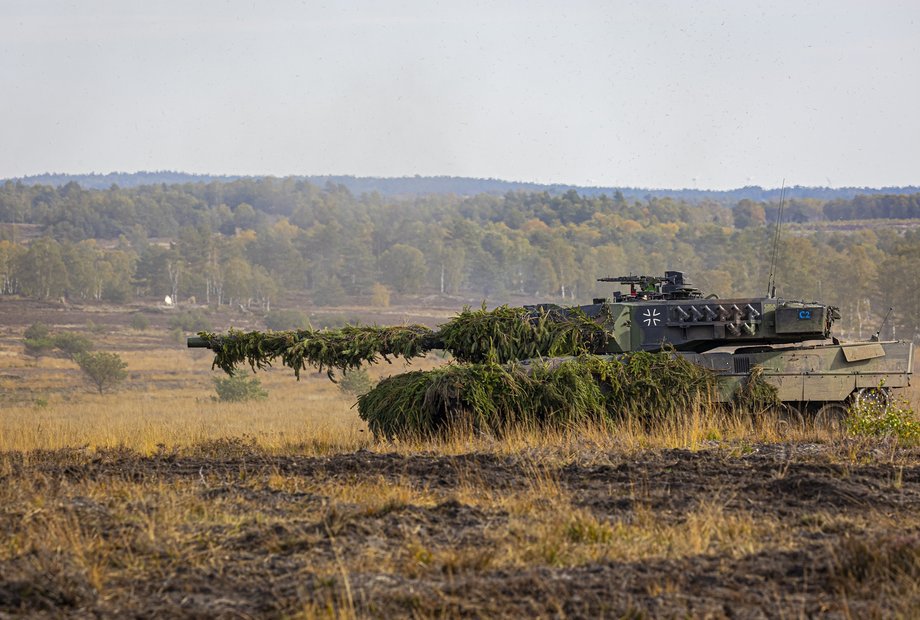IFSH Brief Analysis by Dr habil. Cornelius Friesendorf and Lieutenant Colonel (GS) Thilo Geiger
As talk of a peace agreement in Ukraine gains traction, Germany is considering how such an accord might be secured – and whether its own troops should take part. Much of the discussion has centred on how such an agreement could be implemented. Would the United States support European troops? Could Europe muster a combat-ready (e.g. a 150,000-strong) mission? And would Putin accept a peacekeeping force?
For all their importance, these questions divert attention from the real issue: credible deterrence of Russia. In its broadest sense, deterrence means preventing Russia from striking Ukraine again; in a narrower sense, it means ensuring that Russia does not turn its fire on the peacekeeping force itself. For two key reasons, Moscow is likely to violate any peace agreement, even in the face of a highly robust mission.
Why Russian Attacks Are Likely
The first reason lies in the imperial ambitions of Putin and his siloviki entourage (his inner circle of intelligence and security elites), who refuse to recognize Ukraine as a sovereign state and nation. For them, a ceasefire or peace agreement would merely be part of the well-worn Russian theatre of negotiation: feigning a desire to resolve a problem that Moscow itself created and has no intention of ending. While Russia may not insist on outright territorial control, at the very least it seeks political dominance over Ukraine. From this perspective, international troops would represent an obstacle – and thus a potential target.
The second reason is the Kremlin’s greater appetite for risk compared to Western European states, coupled with its keen awareness of their caution. Democracies are prepared to sacrifice lives, but usually only in wars of necessity, not wars of choice. Putin, by contrast, demonstrates daily through his war in Ukraine that Russian lives weigh little. His repeated nuclear threats further underscore his reliance on escalation dominance.
Likely Scenarios
The danger is very real that Russia would attack an international peacekeeping force. What if NATO soldiers were killed or wounded? One possibility is that Western states, fearful of escalation, might hold back from responding militarily or even withdraw their troops altogether. This would open the door to further Russian advances in Ukraine and fatally weaken NATO’s credibility in defending its own territory.
Another possibility is a military response – direct clashes between Russian and NATO forces that could trigger Article 5 of the NATO treaty. Such a scenario would carry the gravest risk of escalation with a nuclear power.
Nor would stationing troops in western Ukraine solve the problem. While such a deployment might make attacks by drones, missiles, or special forces more difficult, it would not make them impossible. Worse, it would signal from the outset a reluctance to confront Russia head-on.
Dangerous Analogies
Debates over security guarantees for Ukraine often reach for parallels with past military missions. Yet such analogies can be misleading to the extent that today’s Russia is a revisionist nuclear power.
Take the presence of Western allied troops in West Germany during the Cold War. Unlike Russia today, the Soviet Union sought to cement, not redraw, existing borders. Even so, the proximity of opposing forces was fraught with danger, as vividly demonstrated by the 1961 Checkpoint Charlie standoff, when American and Soviet tanks faced each other at point-blank range. Other robust missions were directed against non-nuclear adversaries. Operation Desert Shield in1990 was designed to deter Saddam Hussein from extending his aggression beyond Kuwait into Saudi Arabia. In Bosnia, the NATO-led IFOR mission from late 1995 effectively dissuaded the Bosnian Serbs and their patron, Slobodan Milošević, from violating the Dayton Peace Agreement.
Alternatives to a NATO Force in Ukraine
Debates about a NATO-backed peacekeeping mission overlook the stark risk of war between the alliance and Russia. One theoretical alternative would be a robust UN mission composed of non-NATO states, including China – a force Moscow would be unlikely to challenge, given its reliance on Beijing. Yet this remains unrealistic: Russia would almost certainly veto such a mission in the UN Security Council, and China would be unlikely to commit troops. The most effective deterrent, then, is a Ukraine bristling with far greater Western support. For Moscow, porcupines remain far more persuasive than protocols.
Dr habil. Cornelius Friesendorf is head of the Centre for OSCE Research (CORE) at the IFSH.
Lieutenant Colonel (GS) Thilo Geiger is a liaison officer and research associate at the IFSH.





